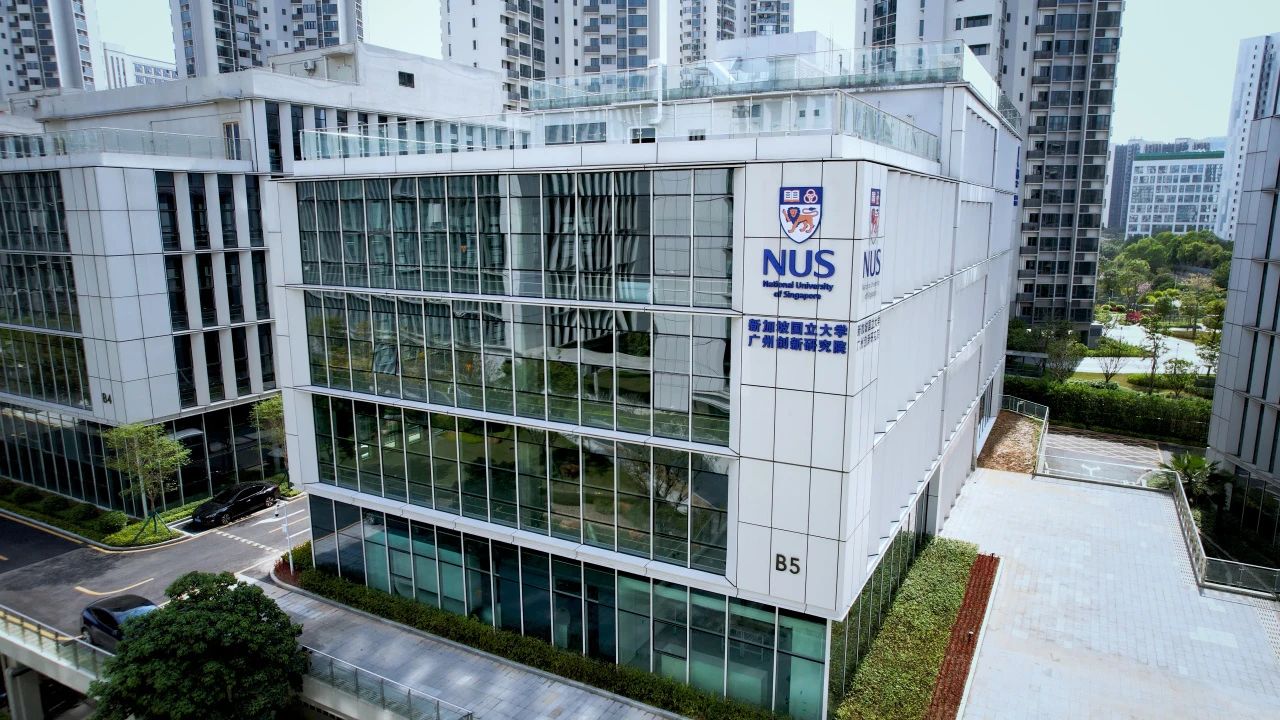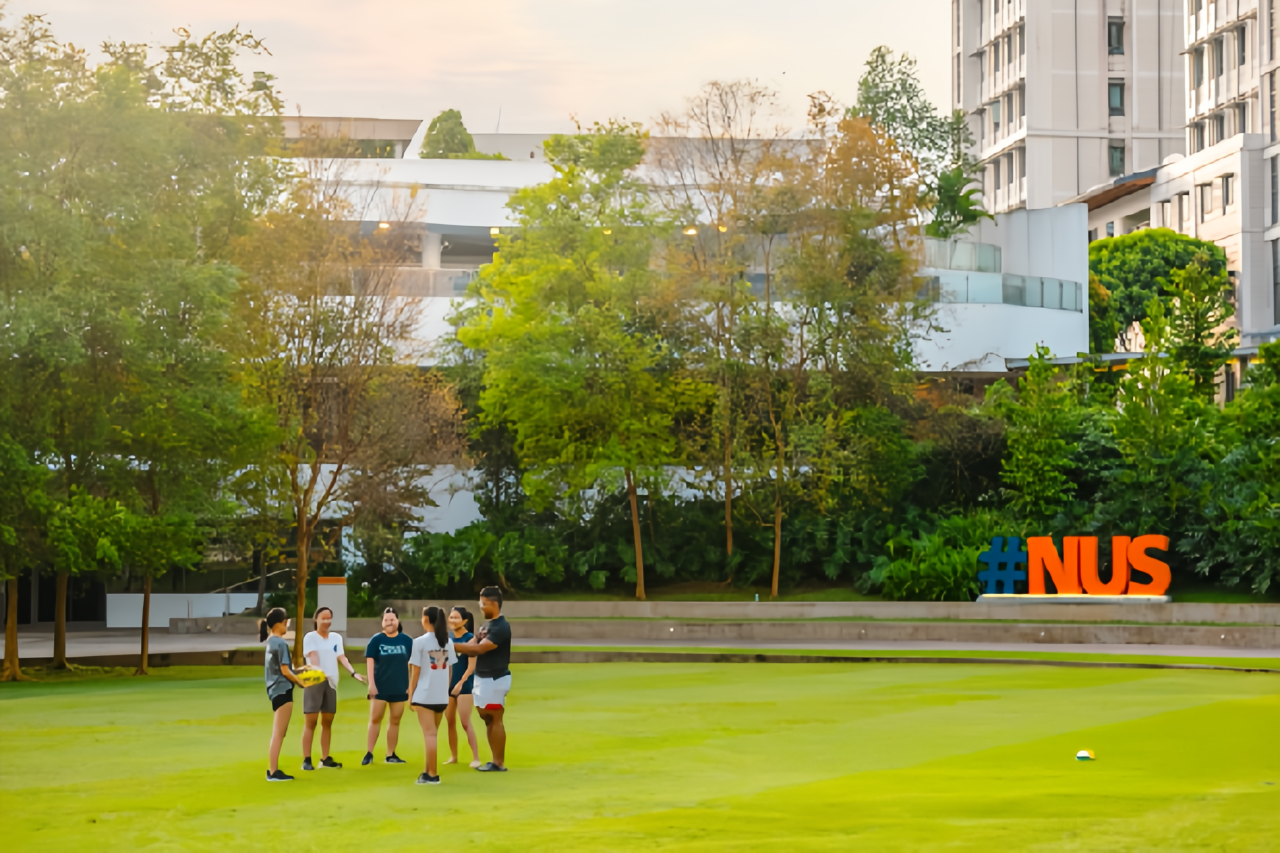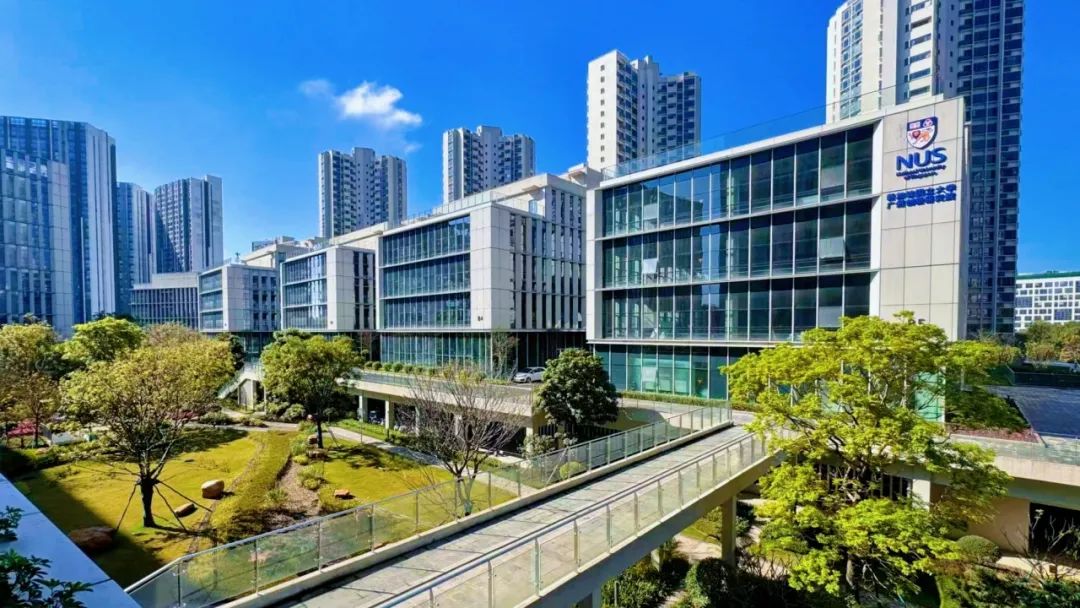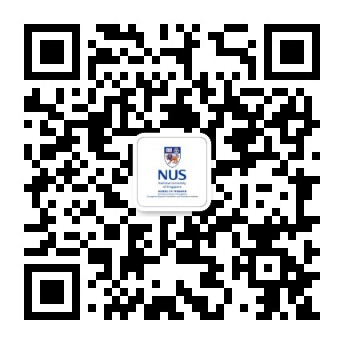Applications for the AY2025/2026 NUS GRTII Masters’ Scholarship are now open. We have received numerous inquiries from students and their parents. In this feature, we invited Ms. Peng, a recipient of the inaugural Masters’ Scholarship, to share her job-hunting experiences, industry insights, and practical advice. Read on to see how her journey might help reduce your doubts and provide valuable reference as you consider applying for the scholarship.
Program Overview
With strong support from the People’s Government of Guangzhou Municipality and the China-Singapore Guangzhou Knowledge City Administrative Committee, the NUS GRTII has established the Masters’ Scholarship (hereinafter referred to as the “Masters’ Scholarship”) and PhD Scholarship programs. These initiatives aim to cultivate and deliver high-caliber talents for Huangpu District—individuals with a global perspective, advanced and specialized technological knowledge, and the capabilities to tackle the challenges of the 21st century.
All academic work under this program will be completed by students at the NUS. Scholarship recipients are required to sign a talent service agreement with the Guangzhou Development District Talent Work Group and, within 30 months of graduation, fulfill a minimum of 24 months of employment or entrepreneurship service in Huangpu District, Guangzhou.

Interviewee Profile
Ms. Peng
Master’s Student in Biomedical Engineering, NUS
Recipient of the inaugural NUS GRTII Masters’ Scholarship
Soon to join a leading domestic in vitro diagnostic company

Scholarship Program and Personal Planning
Q: Through which channel did you learn about our Masters’ Scholarship program? What did you find most attractive about the scholarship?
A: I learned about the NUS GRTII Masters’ Scholarship Program through an internal email from NUS. My major—Biomedical Engineering—happened to be one of the supported disciplines under this program, which immediately caught my interest. Considering that applicants to this program are required to work or start a business in Huangpu District for two years after graduation, I promptly researched the biomedical industry and employment prospects in the area.
Through my research, I found that Huangpu District is the core hub for the biomedical industry within the Guangdong-Hong Kong-Macao Greater Bay Area, hosting more than 4,800 biomedical companies. Numerous enterprises closely related to biomedical sciences are based here, such as Akesobio, BeiGene, XPH, and KingMed Diagnostics. The presence of such companies gave me great confidence in the bright future of the biomedical sector in Huangpu.
Personally, I am very optimistic about the development of the biomedical industry. The 21st century has often been hailed as the “century of biology,” but I believe the sector has not yet experienced its true explosive growth. With the rapid development of AI integration in healthcare, I foresee a major transformation in the overall landscape of biomedicine. As a future professional—or a “small but significant shaper” of the industry—I hope to start my career in a place with broad and promising prospects. Thus, after learning about Huangpu District’s biomedical ecosystem, I quickly decided to apply for the scholarship program.
Q: During the scholarship application or job search process, did you encounter any challenges? How did you deal with them?
A: I did encounter a rather difficult “moment of decision” during the scholarship application process. At the time, I had received both the scholarship offer and a job offer from a company in another region, but I had not yet secured a position within Huangpu District. I experienced some hesitation and even briefly questioned whether I had made the right choice. However, after careful deliberation, I decided to decline the external offer and commit to the scholarship program offered by the NUS GRTII.
On one hand, I have strong confidence in the development prospects of Huangpu District and believe in my ability to secure a suitable position there. On the other hand, both the Guangzhou Development District Talent Work Group and the NUS GRTII provided substantial job-hunting support for Masters’ Scholarship recipients. During the crucial period of autumn recruitment, they compiled a detailed list of high-quality companies in Huangpu District, including company backgrounds, job requirements, and application links. This resource could be described as a “step-by-step job-hunting guide,” saving me a significant amount of time in the early stages of information gathering and allowing me to focus my energy on interview preparation. This all-around support not only greatly alleviated my job search anxiety but also strengthened my confidence in the industry prospects within Huangpu District.
Q: How do you view the two-year service term?
A: I believe two years is actually a very short period in the context of a professional career. It is not something that restrains me; rather, it allows me to consider my long-term career development more thoughtfully. I understand that some students might worry that fulfilling the service term could cause them to miss out on potentially higher-paying opportunities in other cities. However, I believe that short-term salary considerations are merely a numbers game—true career success lies in long-term development. Career planning should always take the long view.

Job-Hunting Experience and Advice
Q: Through which channels did you primarily obtain internship, recruitment information, and career guidance for companies in Huangpu District?
A: In the early stages, I primarily submitted applications based on the information compiled by the Guangzhou Development District Talent Work Group and the NUS GRTII faculty. The job offer I have accepted was actually one I discovered through that list. Additionally, the Group and the NUS GRTII invited us to join several information-sharing groups focused on talent recruitment and development in Huangpu District, where real-time job postings were frequently shared. I found these group resources to be extremely helpful.
Moreover, I proactively browsed the official websites and WeChat official accounts of biomedical companies I was interested in, regularly checking for recruitment news related to autumn and spring hiring cycles.
Furthermore, the Group and the NUS GRTII’s faculty continuously monitored our job search progress, offering résumé optimization advice and regularly sharing referral opportunities at top-tier companies within the district. This combination of information and career guidance ultimately helped me secure my current position.
Q: In the job search process, what qualities do you believe companies in Huangpu District focus on in candidates? Could you offer some employment advice for future scholarship recipients?
A: I am currently employed by an internationally renowned biomedical company in Huangpu District, whose business spans over 150 countries and regions. The role I accepted promises significant opportunities for growth. I undertook extensive research to secure this offer, and reflecting on my job search experience, I believe large enterprises primarily emphasize three points.
The first point is academic background and overall competitiveness. I am aware that some junior students will worry about fierce competition and the difficulty of finding employment in Huangpu District. However, I believe there is no need for them to undervalue themselves, as the world rankings of NUS and the subject rankings are globally leading and well-recognized. Moreover, as scholarship recipients, we already carry the label of “excellent academic ability and comprehensive qualities,” which is highly regarded by many companies in Huangpu District. In effect, the status of being a scholarship recipient serves as a “door-opening opportunity.”
Secondly, the alignment of the position with one’s background and the ability to adapt to learning is also important. While companies in Huangpu District may emphasize a candidate’s specialized background and past experiences, they also value the candidate’s capacity for rapid learning and cross-disciplinary adaptation. Therefore, it is essential during the interview to highlight these qualities—demonstrating quick learning and problem-solving skills is extremely important.
Thirdly, I consider comprehensive soft skills to be crucial. In addition to specialized technical abilities, many enterprises place great importance on a candidate’s communication, coordination, and teamwork abilities. Exhibiting these soft skills during an interview is key to improving one’s chances of success.

The NUS GRTII Masters’ Scholarship Program is committed to building a bridge between academic training and industry needs, alleviating the financial burden of study while propelling students toward the successful launch and advancement of their careers. In the future, we will continue to share the experiences and insights of more scholarship recipients. Please stay tuned for more updates!


